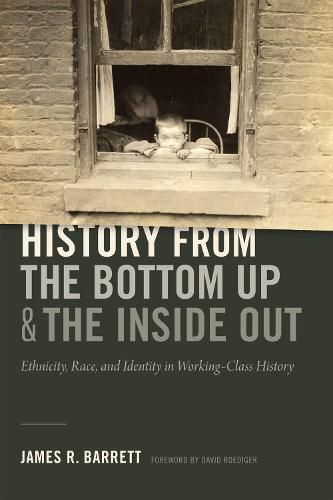Readings Newsletter
Become a Readings Member to make your shopping experience even easier.
Sign in or sign up for free!
You’re not far away from qualifying for FREE standard shipping within Australia
You’ve qualified for FREE standard shipping within Australia
The cart is loading…






In History from the Bottom Up and the Inside Out James R. Barrett rethinks the boundaries of American social and labor history by investigating the ways in which working-class, radical, and immigrant people’s personal lives intersected with their activism and religious, racial, ethnic, and class identities. Concerned with carving out space for individuals in the story of the working class, Barrett examines all aspects of individuals’ subjective experiences, from their personalities, relationships, and emotions to their health and intellectual pursuits. Barrett’s subjects include American communists, blue-collar cosmopolitans -such as well-read and well-traveled porters, sailors, and hoboes-and figures in early twentieth-century anarchist subculture. He also details the process of the Americanization of immigrant workers via popular culture and their development of class and racial identities, asking how immigrants learned to think of themselves as white. Throughout, Barrett enriches our understanding of working people’s lives, making it harder to objectify them as nameless cogs operating within social and political movements. In so doing, he works to redefine conceptions of work, migration, and radical politics.
$9.00 standard shipping within Australia
FREE standard shipping within Australia for orders over $100.00
Express & International shipping calculated at checkout
In History from the Bottom Up and the Inside Out James R. Barrett rethinks the boundaries of American social and labor history by investigating the ways in which working-class, radical, and immigrant people’s personal lives intersected with their activism and religious, racial, ethnic, and class identities. Concerned with carving out space for individuals in the story of the working class, Barrett examines all aspects of individuals’ subjective experiences, from their personalities, relationships, and emotions to their health and intellectual pursuits. Barrett’s subjects include American communists, blue-collar cosmopolitans -such as well-read and well-traveled porters, sailors, and hoboes-and figures in early twentieth-century anarchist subculture. He also details the process of the Americanization of immigrant workers via popular culture and their development of class and racial identities, asking how immigrants learned to think of themselves as white. Throughout, Barrett enriches our understanding of working people’s lives, making it harder to objectify them as nameless cogs operating within social and political movements. In so doing, he works to redefine conceptions of work, migration, and radical politics.